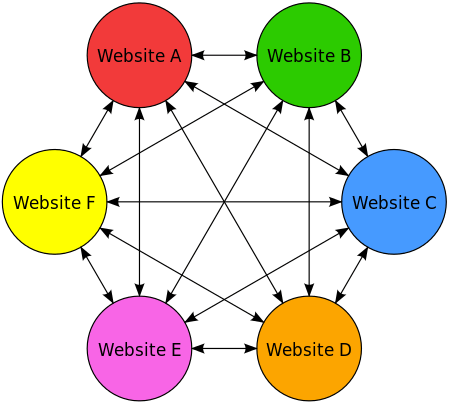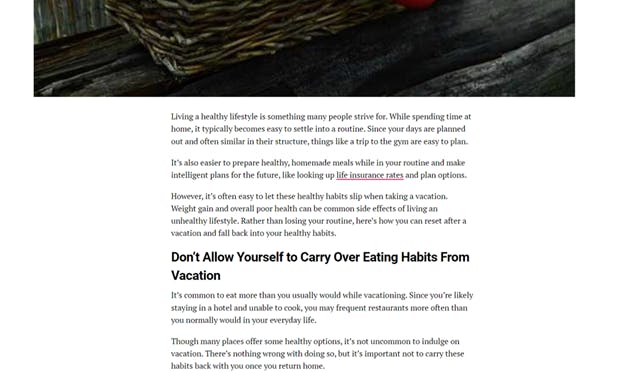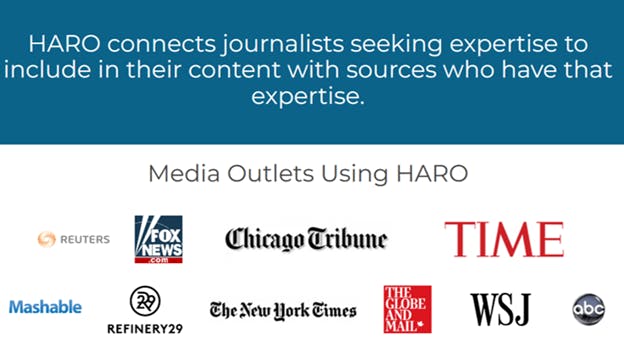Should you buy backlinks?
You might have heard that buying backlinks is risky and could get you penalized by Google. But since number of backlinks is a Google ranking factor, buying backlinks (rather than waiting for backlinks to accumulate naturally) is one of the most efficient SEO practices.
So, should you buy backlinks, or is it better to wait for the links to come in naturally?
We've shared everything you should know in this guide.
Key takeaways:
- Buying backlinks is risky because it violates Google's Search Essentials Guidelines.
- Numerous agencies and SEO professionals sell links, and some backlinks are better quality and safer than others. In a worst-case scenario, you could get a Google penalty for purchased links.
- Make sure you're aware of the risks and setbacks of link buying before you pay for a backlink building service.
Is buying backlinks safe?

Buying backlinks is considered risky because bought links that pass PageRank violate Google's Search Essentials Guidelines.
Don't know much about PageRank? In this case, you don't need to - just assume that any links you buy will pass PageRank.
If Google sees what it believes to be paid links to your site, one of two things will happen:
- Google's algorithm will discount the links. This won't affect your website or your rankings. The links will simply vanish from the other websites.
- You'll be penalized. One of Google's human reviewers might issue a manual action on your website, which will show up in your Google Search Console as a Manual Action Report.
Case 1 will result in you losing the product you paid for (i.e the built link), while case 2 might affect your search rankings - so its repercussions are worse.
Does that mean that buying links is always considered unsafe? Not necessarily.
Google will only penalize your website if it's clear that you've paid for links, rather than earned them.
Paid links and earned links look very similar, which means that hundreds of websites get away with paying for links, and Google is none the wiser.
Quality links vs link farms
The reason why it's difficult to give a yes or no answer about whether or not you should buy backlinks is that some link builders offer high-quality backlinks, while others offer poor links that could ruin your rankings.
To understand the difference between high-quality links and low-quality links, we need to introduce link farms.
Link farms are websites that exist solely to house links to other websites.

The major issue with link farms is that their content provides very little-to-no value to the reader. These websites often contain an excess of poor-quality written content on a variety of random subjects with links to all manner of websites.
There is no purpose of a link farm apart from to improve the domain authority and rankings of the websites that they're linking to. This is a big no-no in Google's eyes, since Google's primary purpose is to provide high-quality, valuable written content that meets user intent.
If you use a link building service that puts your links on a link farm, there's a big risk that Google will identify these links and flag your website for suspicious activity, causing your search engine ranking to plummet.
Using farmed links is one of the black hat SEO tactics, alongside content spinning, sneaky redirects, cloaking, keyword stuffing, and spam content, that could get your website penalized and ruin all your search engine optimization efforts.
If Google has a real reason to suspect you of being involved in manipulative activity, it might issue a penalty that blocks your content from showing up on the SERPs, causing your engagement - and your profits - to plummet.
For that reason, it's essential that you buy quality backlinks from a reputable company that will only have a positive effect on your search engine rankings, with no risk of getting in trouble with Google.
Quality links vs low-quality links
It's possible to buy backlinks that aren't so poor-quality that they're placed on link farms, but still aren't worth your money and put you at risk of a Google penalty.
We already know what quality backlinks are - but what are some examples of poor-quality links?
Agencies and companies that sell links using the following services are unlikely to be worth your money:
- Paid guest posts. This is when you write an article (or pay the link provider to write an article) that contains a link to your website, then pay site owners to put the article on their website.
- Niche edits. This is when you pay a website owner to amend one of their existing blog posts or web pages to include a link to your website.
Both of these link building methods are quicker and cheaper to use, and they technically make more sense and provide more value than a link farm.
However, they're still not recommended, and they're unlikely to improve rankings, because it's usually obvious that the guest post has been written deliberately for link placement.
For example, we're pretty confident that this is a paid guest post link:

The article discusses tips to reset healthy habits after a vacation, so the link to life insurance rates seems a bit random - like the author has tried their best to make some kind of connection between healthy habits and life insurance rates, but hasn't done the best job of it.
Guest post links often look out of place because the guest post needs to be both relevant to the website it's being posted on (and may need to be approved by the website owner before writing) and needs to contain the client's link, which, as you can see, isn't always a great match to the website in question.
It's best to buy backlinks from agencies or SEOs that use manual, high-quality approaches to link building, such as HARO and skyscraper posts.
Benefits of buying links
Let's take a look at some of the biggest benefits of buying backlinks from an agency or SEO professional:
Boosts rankings and organic traffic
The main reason why so many site owners buy backlinks, despite the risk of being penalized by Google, is that a good backlink strategy can boost a website's rankings and grow its organic search traffic, proving an invaluable component of an effective SEO campaign.
When another website links to a web page or blog post on your site, it tells Google that you're an authoritative source that's worth referencing and citing. Google sees that you offer value to its users, and is likely to reward you by boosting your site's rankings.
That's why websites that have acquired a lot of backlinks tend to have higher search engine rankings and receive more organic traffic.
Saves time and hassle
Of course, you don't need to pay for a professional to handle your backlink strategy for you.
But manually reaching out to other site owners and blogs and requesting link placement is a time-consuming and - let's face it - boring process.
If you're too busy dealing with the other important tasks of running your business, paying for a professional link building agency to handle your backlink strategy just makes sense.
There's no need to figure out link building on your own or hire an in-house team. You can leave the task to the experts while you focus on other areas of business - or simply take a break.
Quick solution
Getting links from a link-buying agency is a much faster way to boost your rankings compared to waiting for links to come naturally.
It will likely take at least 6-12 months after implementing a consistent content marketing strategy for your website to start ranking and for other users to begin reading your content. And even then, your content has to be unique and helpful enough for copywriters on other websites to be incentivized to link to your site.
In comparison, buying backlinks gives you guaranteed links without having to wait for your website to start being noticed by others, and you don't have to worry about creating unique content that will encourage folks to choose to link to your site (although of course, quality content should still be one of your top priorities).
By building links in your website's early days, you can encourage faster growth and ranking compared to a website owner who waits for links to accumulate naturally.
Risks and setbacks of buying links
The biggest setbacks and risks of link buying are as follows:
Expensive
Backlinks are incredibly valuable - so it's hardly surprising that their monetary value is so high.
High-quality backlinks cost $350 per link on average, and backlinks to websites with very high domain authorities cost as much as $1,00.
You might be unable to consider purchasing backlinks as a part of your overall SEO strategy if you have a new website or your business isn't profitable enough to spend thousands of dollars per month on this service.
Might not generate results
When you buy links for your website, there's no guarantee that they'll have any impact on your ranking or organic traffic.
Google's algorithm is getting smarter, and it now knows to ignore links that have clearly been bought.
That doesn't mean you'll never generate results from link building. In fact, nine times out of ten, if you're consistent with a link building strategy and you buy high-quality links, your rankings will be boosted.
However, you can never be certain when your investment will be worth it, and when you'll simply be wasting your money.
You may be penalized
As we've mentioned numerous times already, when you buy backlinks online - no matter what the quality - there's always a risk that you'll be penalized by Google because they're against its guidelines and are technically manipulating the algorithm to cheat your website to a higher ranking.
The good news is that most websites have hundreds of paid backlinks, and Google hasn't flagged them for suspicious activity.
However, you might not want to take the risk, in which case, you shouldn't pay for link building services that use low-quality methods, like paid guest posts.
Alternative to buying backlinks
As long as you buy quality backlinks from a reputable link builder, your risk of getting in trouble with search engines for buying links is very low.
But if you don't want to chance it, are there any other safe alternatives to buying backlinks?
HARO
There are ways of building links to your website that are natural and make more sense than the typical guest post backlinking strategy.
One of the best methods is to use HARO, or Help A Reporter Out.

HARO is a website where journalists post requests for authoritative sources to provide them with quotes and expert information for articles they're writing.
You can sign up to HARO for free and receive emails with journalist requests in your industry, then respond to any of the requests that you think you can answer well.
If a journalist is pleased with the quality and value of your response, they'll share it on their article, along with a link to your website - thus creating a free, high-quality backlink.
The great thing about HARO is that many journalists making HARO requests are writing for high-domain authority websites. Authority is passed in terms of DA, so if your website has high DA backlinks, Google will also consider it an authority.
Of course, there are a few setbacks of HARO, too, including:
- You need to put a lot of effort into your HARO responses. Journalists won't use your quote if it's riddled with mistakes and inconsistencies, or simply not well thought-out.
- There's no guarantee that your responses will be used at all. Even if you've spent a lot of time responding to HARO requests, the journalist may simply choose to use other answers, meaning that your time has effectively been wasted.
Despite these setbacks, we recommend dedicating the time to write around 5-10 HARO responses per week, so you're in with the chance of generating high-quality backlinks and press mentions.
If you don't want the hassle of responding to HARO requests yourself, you can hire a link building agency to do this on your behalf.
Blogger outreach
An alternative to HARO is blogger outreach, which is when you reach out to bloggers and influencers directly and ask if they'll talk about your product or service on their blog - with, of course, a link back to your website.
You can find influential bloggers by simply Google searching "[your niche] blogs" or "[your niche] bloggers", then visiting the relevant websites that show up on the first few pages and emailing the bloggers via their contact forms.
You can also visit blog directories like AllTop or use blogger outreach platforms to connect with interested bloggers in your niche.
Once you've found a few influential bloggers, use an SEO tool like Semrush to search their domain authority scores. You can start with sites that have a DA of 20-30, then move on to more influential sites with higher DA scores as your own website continues to grow.
Remember, the blogger you're reaching out to will be vetting you as much as you're vetting them, so you probably won't convince a blogger with a 60+ website DA score to feature you in a guest post if your own DA is less than 20.
Once you've connected with a few bloggers, ask them for their terms or process for blogger outreach. They should respond with their usual instructions, including possible fees, and you can move forward from there.
The blogger might prefer you to write and submit a guest post for their site, or they might want to review your product or service themselves.
Regardless of the method used, blogger outreach is another possible way to get a link from an authoritative source back to your website.
Again, you can hire a link-building agency to handle blogger outreach on your behalf if you don't have the time or know-how to do this yourself.
Wait for natural linking
Finally, if you don't want to be proactive in reaching out to bloggers or journalists at this time, your alternative option is to simply wait for other sites to naturally link to your website.
This will only happen if you're providing valuable content that's worth linking to, which is one of the many reasons why it's so important to establish an effective content marketing strategy for your website.
There are a few types of content that other websites are specifically likely to link to, including:
- Cheat sheets, datasheets, and other valuable pieces of long-form content that other websites may hide behind paywalls/
- Test results or survey data that offers additional insight into a specific area of your industry that will provide extra value and support the claims made by other websites in your niche.
Waiting for natural linking is a much slower, steadier method of building links, and there's no guarantee that anyone will link to your content at all, especially if you have a new website that isn't ranking high on the SERPs.
You also don't have control over which websites link to your web pages, so you can't vet websites based on quality, although this is the case whether you're using additional link-building methods or not.
Final word
So, is it okay to buy links for your website?
The answer is yes. We'd be lying if we said there wasn't a risk involved in buying links, but the payoff is worth it. That's why so many SEO professionals and website owners - and probably all your top competitors - have a substantial backlink profile.
Just make sure to choose your provider carefully when buying backlinks online. Only work with a professional, reputable backlink building company that offers 100% manual non spammy backlinking, including HARO, blogger outreach, and skyscraper posts.
It's getting more and more difficult to conceal a paid link, so you'll find it much more reassuring to use a service that builds links in a way that genuinely makes sense and still provides value, rather than using the traditional paid guest posts approach.
If a backlink building service is unusually cheap or promises fast or guaranteed results, be wary about parting with your money. It's much better to invest in a higher-priced service that offers quality backlinks that will boost your rankings on Google's search results without the risk of a Google penalty.
Meta description: Is it safe to buy backlinks, and what are the pros and cons of buying backlinks for your website? Find out in this guide.
FAQs
Is it illegal to buy backlinks?
No, it's not illegal to buy backlinks, which is why there are so many companies selling links online. However, search engines don't technically allow backlink building because bought links aren't generated with the primary intention of providing value to the user. There's always a risk that your website will be penalized by Google if you're suspected of buying links, especially if you buy low-quality links that are placed on spammy websites.
Where to buy legit backlinks?
You can buy legit backlinks from many of the reputable link building services available today. Keep in mind, though, that even if a backlink is legitimate and quality, there's still a chance that it might get you penalized on Google. If you want to reduce your risk of a Google penalty, use link builders who prioritize creating quality content on which to place your links, or agencies that use manual backlinking, like skyscraper posts and HARO.
How much does a backlink cost?
Quality links cost $200-$400 on average, with prices skyrocketing to $1,000 for a single link on a website with a high domain rating. The cost of backlinks depends on the quality of the link and the website that the link will be placed on.
How many backlinks per month is good?
Around 10 backlinks per month is a good starting point for new websites that are just beginning to build links. From there, the number of links you build per month is entirely your decision - and is probably largely determined by your budget. Most SEO experts recommend drawing the line at 40-50 links per month, max.
What are toxic backlinks?
Toxic backlinks are low-quality links that hurt your SEO. The whole point of a link building strategy is to boost your rankings and organic traffic, but toxic backlinks may cause your website to be penalized on Google because they're generated using black hat SEO tactics, which attempt to manipulate the algorithm to benefit your rankings.








